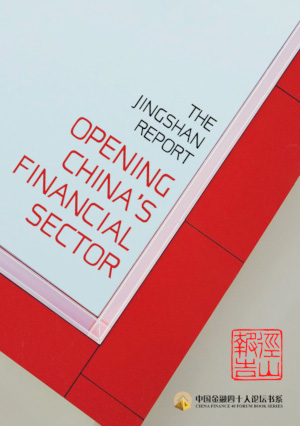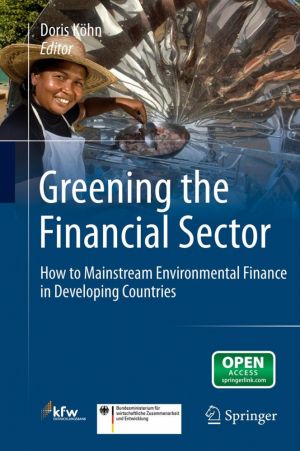Greening the Financial Sector
How to Mainstream Environmental Finance in Developing Countries
by Doris Köhn
DescriptionDetailsHashtagsReport an issue 






Book Description
Given the manifold challenges of financial sectors in developing and transition countries, one might be tempted to believe that embarking on "green" finance is not a priority for financial systems development. However, there are a number of arguments against this view. Environmental finance, particularly energy efficiency and renewable energy (EERE) finance, can and should serve as an interface to other sub-sectors of financial sector promotion such as microfinance, housing finance or agricultural finance. For example, existing clients of financial institutions include small and medium-sized enterprises and households, and these are often suffering from high energy prices or have no access to sustainable energy supply. At the same time, these clients are vulnerable to extreme weather events, and often hit hardest by the impact of climate change. There are many other examples which show that the financial sector has an enormous potential to support "green" investments. In order to tap this potential on a sustainable basis, it is important to have a sound understanding which role financial institutions can and should play.Likewise, financial institutions need to understand the demand side of environmental finance markets and the framework conditions in order to be able to design adequate financial products. This book provides a blend of well-founded professional and scientific perspectives on the potential of Environmental finance in developing and transition countries. All institutions and the clients they serve will be affected by the changing climate. In this new reality, green finance will not be a luxury, but a way of meeting clients' needs effectively and doing sound business. This book challenges, guides, inspires, and, at times, cautions us, in navigating this new normal. Alexia Latortue, CGAP Deputy CEO"The finance and investment community can play a leading role in determining a positive, inclusive future development path. They can achieve this by better understanding the ethical and ESG dimensions of the market while, importantly, appreciating the need to build the investment business case around the ideas, entrepreneurs, technologies and companies that will define the future. What is changing rapidly amongst an influential group of the most senior banking executives, however, is the understanding that good ESG (environmental, social and governance) practice often helps deliver sustainable results for the institution." Paul Clemens-Hunt, UNEP FIPaul Clemens-Hunt, UNEP FIThis open book is licensed under a Creative Commons License (CC BY-NC). You can download Greening the Financial Sector ebook for free in PDF format (3.1 MB).
Book Details
Title
Greening the Financial Sector
Subject
Economics and Finance
Publisher
Springer
Published
2012
Pages
262
Edition
1
Language
English
ISBN13
9783642050862
ISBN10
3642050867
ISBN13 Digital
9783642050879
ISBN10 Digital
3642050875
PDF Size
3.1 MB
License

Related Books

Nonprofit organizations are on the front lines in communities, providing an important foundation for the social safety net in the United States and around the world. They also provide places where people can gather, share ideas and build community. They often accomplish amazing feats with few resources. This book was designed to be used in an under...

The Jingshan Report is a collection of research papers on key issues for China's financial opening, including reform of the RMB exchange rate regime, management of cross-border capital flows and financial support for the Belt and Road Initiative. Authored by leading experts in the relevant fields, the report examines the evolution, current sta...

Macroeconomics: Theory, Markets, and Policy by D. Curtis and I. Irvine provides complete, concise coverage of introductory macroeconomics theory and policy.
The textbook observes short-run macroeconomic performance, analysis, and policy motivated by the recessions of the early 1980s and 1990s, the financial crisis and recession of 2008-2009, and...

This open book is geared towards providing insights and stimulating new thinking about the changing nature of services, service work and workers, and service experiences during and after the COVID-19 pandemic in 2020, particularly focusing on digital service technology. This book serves as a useful resource for business practitioners and academics ...

This book provides a critical account of the third sector and its future in Europe. It offers an original conceptualization of the third sector in its European manifestations alongside an overview of its major contours, including its structure, sources of support, and recent trends. It also assesses the impact of this sector in Europe which conside...

With technology standards becoming increasingly common, particularly in the information and communications technology (ICT) sector, the complexities and contradictions at the interface of intellectual property law and competition law have emerged strongly. This book talks about how the regulatory agencies and courts in the United States, European U...

